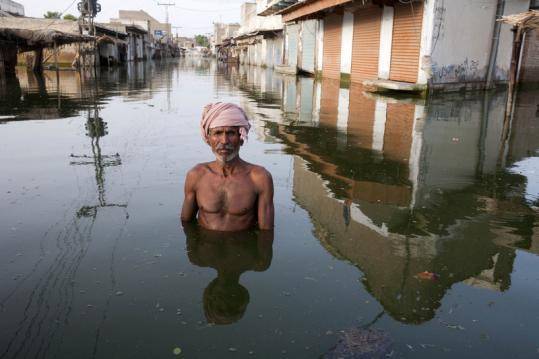The latest report on climate research published by the U.S National Oceanic and Atmospheric Agency (NOAA) last week concluded that 2015 was by far the hottest year on record and the global temperatures would significantly increase this year as well. With the levels of carbon dioxide continuing to increase, the rise in atmospheric temperatures will contribute to further global warming as further indicated by two reports published by the United Nation's World Meteorological Organisation (WMO) and NASA's Goddard Institute for Space Studies (NASA GISS) last month, which also reported that 2016 would be the hottest year on record.
Such detailed research provides unequivocal data on how climate change is going to have an adverse effect on the overall economic, societal and ecological systems of our planet. Pakistan being the world’s sixth most populous state, still struggling with widespread poverty with a primarily agricultural driven economy, is said to ranked as the eight most at-risk from climate change between 1995 to 2014 by GermanWatch.
Pakistan has already suffered from some of the worst climate induced disasters on record, according to the report published by GermanWatch, which highlights that Pakistan was hit by 143 climate related disasters from 1995 to 2014. Disasters that were highly devastating include the catastrophic floods of 2010 and 2012 which displaced millions of people and killed thousands more; deadly heat waves of Karachi in 2015 which left more than 1000 people dead and drought in Thar region of Sindh which has led to 172 dead this year alone.
Such widespread devastation from climate related disasters has not only contributed to significant loss of human life, but it has further undermined the fragile economy, damaged ecosystems and affected development projects leading to increase in poverty, instability and even displacement of people as researched by the Internal Displacement Monitoring Center last year in its annual report. The report estimated that between 10 to 15 million people were displaced in Pakistan due to climate related natural disasters alone.
Climate change was recently endorsed as one of the greatest threats humanity and our planet faces, when 175 countries agreed at the Paris hosted Climate Change Conference by United Nations last year, to limit the rise in global temperatures which has gone to 2 degree Celsius (3.6 Fahrenheit). Pakistan, which was represented by Prime Minister Nawaz Sharif, was also signatory the historic Paris Agreement, in which it committed itself on not only reducing its emissions by pursuing clean and renewable sources of energy but also adapting and implementing plans to mitigate the threats posed in face of the climate disaster that have already affected the country at large.
The official policy making and its implementation has rather been a very sad state of affairs, which does not reflect the urgency from Pakistan's authorities to deal with the climate crisis faced by the country. Compare this to other SAARC nations, notably Bangladesh, which has successfully implemented its own comprehensive Climate Strategy and Action Plan, Pakistan has mostly lagged behind in adoption of any strategy that can help it in dealing with the climate crisis.
Pakistan not only delayed its submission of its intended nationally determined contribution (INDC) to the UN, but the draft document which it submitted was later deemed to be "bogus and ludicrous" by the international experts. The federal government announced last month that it will setup a Climate Change Authority to combat the climate crisis, which would consist of 35 government officers, experts and members of the civil society that could be the first of its kind in Pakistan.
Adapting to climate change must be given the highest priority by the Pakistani authorities, because adapting to the threats climate change poses requires international assistance and financial commitments. Despite the increase in global climate finance of around $25 billion to the developing world, as proposed by the World Bank report published in May, Pakistan's share happened to be “very little, very late” compared to the damages it has suffered. The annual cost of climate adaptation for Pakistan can run at a cost of around $6-14 billion as reported by United Nations Framework Convention on Climate Change (UNFCCC).
Pakistan would be required to take concerted action towards adapting to the climate risks in a 1.5 Celsius warming scenario. Implementation of successful adaptation strategy requires comprehensive research and planning which unfortunately is lacking at this stage. Adaptation solutions must involve participation of stakeholders from across the board, whether it is the government, civil society, local businesses or communities they must all work to secure a healthier and safer climate friendly future for all.
From the lessons learned in other parts of the world, policy makers in Pakistan must direct investments to implement adaptation strategies which range from flood management to mitigate the threats of devastating floods, adoption of climate smart agricultural practices in order to have resilient food crops and building of climate safe infrastructure and housing for communities displaced and vulnerable to climate related disasters.
Without preparing and investing ahead to adapt and mitigate such strategies, Pakistan is set to lose more than ever before, because inevitably climate change threatens the countries and communities who have least contributed to it.






